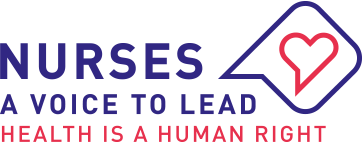Realising the Full Potential of Nursing: CNO Wales
In November 2016, the Chief Nursing Officer (CNO) of Wales set the national strategic goal: “to realise the full potential of the nursing and midwifery professions in order to meet, in partnership with others, the changing health and well-being needs of people living in Wales”, along with eight priority areas and associated key actions to be delivered by 2021[i]. The priority areas include: professionalism; voice and leadership; workforce and education; informatics; research, development and innovation; promoting population health and well-being; quality and safety of care; and promoting integration of care (people-centred approach).
The key actions were developed in consultation with nurses and midwives in Wales and were drafted to be in line with the Welsh Government’s commitments to health and social care as set out by the concept of prudent health care and its four principles.[ii] Namely:
- Achieve health and wellbeing with the public, patients and professionals as equal partners and through co-production
- Care for those with the greatest health needs first, making the most effective use of all skills and resources
- Do only what is needed, no more, no less; and do no harm
- Reduce inappropriate variation using evidence-based practices consistently and transparently
The first prudent health care principle focuses attention on people, particularly in adjusting the power dynamic that currently exists between health professionals and patients so that patients are equal partners in deciding what should be done. For example, instead of a nurse asking “What can I do for you today?” they could say, “What do you want to achieve and how can we work together to achieve this?” Being people-centred should be evident in all professional interactions.
In 2016, the UK CNOs decided to explore what professionalism means to nurses and midwives and understand how a people-centred approach to care could be instilled in practice. Working with the Nursing and Midwifery Council (UK professional regulator) they developed guidance called ‘Enabling Professionalism’ (2017) [iii] to support practitioners in applying their Code of Conduct to their daily practice. Importantly, this report also identifies what employers should do to enable professional practice to flourish in organisations.
The CNO has focused a lot of effort on the development of the nursing and midwifery workforce in Wales. Wales now has a law, the Nurse Staffing Levels (Wales) Act 2016, which is unique in Europe. This law requires the National Health Service (NHS) to consider whether it has sufficient nurses to care for patients sensitively in all areas and sets out a particular methodology for calculating the nursing workforce attached to specific service areas. In the first instance, this methodology[iv] will be applied to adult acute medical and surgical wards but the law allows extension to other service areas. At the heart of this law is the recognition of the professional voice of senior front-line nurses in determining the staff they need to care for their patients.
In order to deliver the priority actions, the CNO works closely with senior health service and education leaders, as well as professional associations and regulators outside government, to support and influence policy leaders inside government. In order to feel confident in raising their professional voice, nurses and midwives need to be educated appropriately – Wales was the first country in the UK to have all baccalaureate degree education for nurses and midwives and since 2010 has standards for advanced practice.[v] As a result, Wales has been forging ahead with developing specialist and advanced roles and having nurse and midwife led services to the betterment of patient care.
The development of the evidence base, particularly in terms of cost effectiveness and patient outcomes, will continue to strengthen this professional voice.
[i] CNO Priorities 2016-2021 – accessed from: http://gov.wales/docs/phhs/publications/161222prioritiesen.pdf
[ii] Prudent Healthcare principles accessed from: www.prudenthealthcare.org.uk
[iii] Enabling Professionalism 2017 – accessed from: http://gov.wales/docs/phhs/publications/170508professionalismen.pdf
[iv] Nurse Staffing Levels (Wales) Act 2016 – Statutory Guidance Nov 2017 – accessed from: http://gov.wales/docs/phhs/publications/171102nurse-staffingen.pdf
[v] Advanced Practice Framework 2010, accessed from: http://www.weds.wales.nhs.uk/advanced-practice/

